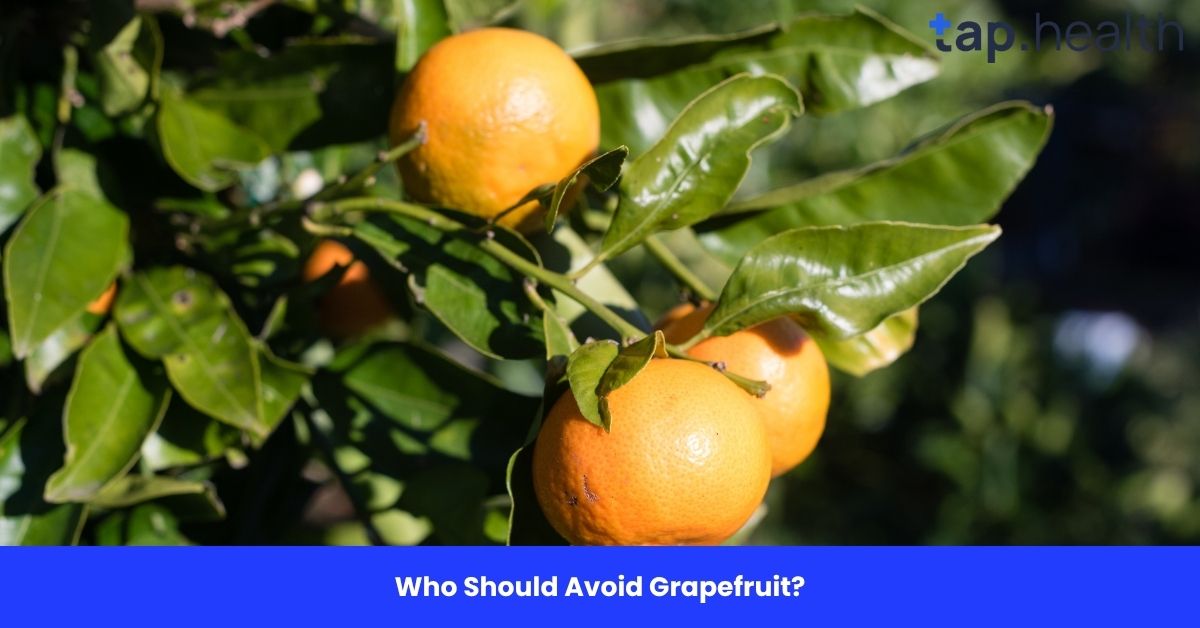You’ve probably heard someone say, “Eat amla every day, and you’ll stay healthy.” But is it really true? And more importantly — is amla good for heart?
Amla, also known as Indian gooseberry, is a small greenish-yellow fruit that’s been used in Ayurvedic medicine for thousands of years. It’s packed with vitamin C, antioxidants, and natural compounds that scientists are now studying for their heart-protecting powers.
In this article, we’ll answer the big question: Is amla good for heart? We’ll look at what modern science says, how it helps your heart, the best ways to eat it, and who should be careful.
Let’s dive in.
What Is Amla?
Amla is a sour, tangy fruit that grows on a small tree common in India, Nepal, and other parts of South Asia. Its scientific name is Phyllanthus emblica, but most people just call it amla.
It’s a key part of Ayurveda — India’s traditional healing system — and is believed to balance the body’s energies and boost overall health.
Why Is Amla So Popular?
- It has 20 times more vitamin C than an orange.
- It’s loaded with antioxidants that fight damage in the body.
- It’s used to support digestion, immunity, hair, skin, and yes — heart health.
But is it really good for your heart? Let’s find out.
Why Heart Health Matters
Your heart is like a pump that sends blood to every part of your body. If it gets weak or damaged, serious problems can happen — like high blood pressure, heart attacks, or strokes.
Common heart risks include:
- High cholesterol
- High blood pressure
- Inflammation
- Poor blood circulation
- Oxidative stress (damage from free radicals)
The good news? Many of these can be improved with diet and lifestyle — and that’s where amla may help.
Is Amla Good for Heart? The Scientific Answer
Yes — amla appears to be good for heart health, based on both traditional use and modern research.
Studies show that amla can:
- Lower bad cholesterol (LDL)
- Raise good cholesterol (HDL)
- Reduce blood pressure
- Prevent plaque buildup in arteries
- Improve blood vessel function
- Reduce inflammation and oxidative stress
Let’s break down each benefit in detail.
How Amla Helps Lower Cholesterol
High cholesterol is a major cause of heart disease. When there’s too much “bad” cholesterol (LDL), it can build up in your arteries and form plaque — like rust in a pipe. This narrows blood flow and raises the risk of heart attack.
Amla Reduces LDL (Bad Cholesterol)
Multiple studies have found that amla helps lower LDL cholesterol.
One study published in the Journal of Medicinal Food showed that people who took amla powder daily for 28 days had significant drops in LDL and total cholesterol.
Amla Raises HDL (Good Cholesterol)
HDL is the “good” cholesterol that helps clean out the bad kind. Amla has been shown to increase HDL levels, which helps protect your heart.
How Does It Work?
Amla contains natural compounds like:
- Tannins
- Flavonoids
- Phenolic acids
These help the liver process cholesterol better and stop it from turning into plaque.
Can Amla Lower Blood Pressure?
Yes — and this is one of its most promising heart benefits.
High blood pressure forces your heart to work harder. Over time, this weakens the heart muscle and damages blood vessels.
Amla Acts as a Natural Blood Pressure Regulator
Research suggests amla helps relax blood vessels, which allows blood to flow more easily.
A study in Phytotherapy Research found that people with mild hypertension who took amla extract for a few weeks had lower systolic and diastolic blood pressure.
Why It Works
- Amla is rich in antioxidants that protect blood vessel walls.
- It improves nitric oxide production, which helps blood vessels stay flexible.
- It reduces oxidative stress, a key cause of stiff arteries.
Think of amla as a natural helper that keeps your blood vessels young and strong.
Does Amla Prevent Artery Blockage?
Yes — and this is a big deal.
When cholesterol and inflammation build up in your arteries, they form plaque. If a piece breaks off, it can cause a heart attack or stroke.
Amla Helps Stop Plaque Formation
Animal and human studies show that amla:
- Reduces fatty deposits in arteries
- Slows down plaque buildup
- Makes plaque more stable (less likely to break)
One study found that amla reduced atherosclerosis (hardening of the arteries) in lab animals by up to 50%.
How?
- It lowers LDL cholesterol (the main ingredient in plaque)
- It reduces inflammation in blood vessel walls
- It prevents cholesterol from becoming oxidized (a key step in plaque formation)
So, amla doesn’t just lower cholesterol — it stops it from harming your heart.
How Amla Fights Inflammation and Oxidative Stress
Chronic inflammation and oxidative stress are silent enemies of heart health.
- Inflammation makes blood vessels swollen and damaged.
- Oxidative stress happens when free radicals (harmful molecules) attack cells.
Both are linked to heart disease, high blood pressure, and aging.
Amla Is Packed With Antioxidants
Amla has one of the highest antioxidant levels of any fruit. It contains:
- Vitamin C – a powerful antioxidant
- Ellagic acid
- Gallic acid
- Quercetin
These compounds neutralize free radicals and calm inflammation.
What the Research Says
A review published in Oxidative Medicine and Cellular Longevity found that amla:
- Lowers markers of inflammation (like CRP)
- Boosts the body’s own antioxidant defenses
- Protects heart tissue from damage
This means amla doesn’t just taste good — it helps your body heal itself.
Does Amla Improve Blood Circulation?
Yes — and better circulation means better heart health.
When your blood flows smoothly, your heart doesn’t have to work as hard. Your organs get more oxygen, and your risk of clots and blockages goes down.
Amla Supports Healthy Blood Vessels
- It strengthens capillary walls
- It improves blood vessel flexibility
- It prevents blood from becoming too thick
This leads to better circulation and lower risk of heart problems.
Can Amla Help Prevent Heart Attacks?
While no single food can guarantee you won’t have a heart attack, amla may lower your risk significantly.
By:
- Lowering cholesterol
- Reducing blood pressure
- Preventing plaque
- Fighting inflammation
…amla checks many of the boxes for heart protection.
One long-term study found that people who regularly consumed amla had a lower risk of heart disease compared to those who didn’t.
It’s not a magic cure — but it’s a powerful natural ally.
How to Use Amla for Heart Health
Now that we know is amla good for heart, let’s talk about how to use it.
You don’t need fancy supplements. Amla comes in many forms — fresh, dried, powdered, or as part of traditional remedies.
Fresh Amla
- Eat 1 small raw amla every morning on an empty stomach.
- It’s sour, so you can sprinkle a little salt or honey on it.
- Chew slowly and drink water after.
Tip: Don’t eat too many — 1–2 per day is enough. Too much can cause stomach upset.
Amla Powder (Churna)
- Mix 1 teaspoon of amla powder in water, juice, or smoothie.
- Take once daily, preferably in the morning.
- Available at Indian grocery stores or online.
Amla Juice
- Drink 30–50 ml of pure amla juice daily.
- Choose unsweetened versions — added sugar harms the heart.
- You can mix it with honey or water if it’s too sour.
Amla Capsules or Supplements
- Follow the dosage on the label (usually 500–1000 mg per day).
- Look for standardized extracts with high antioxidant content.
- Always buy from trusted brands.
Triphala (Contains Amla)
- Triphala is an Ayurvedic blend of three fruits: amla, haritaki, and bibhitaki.
- It supports digestion and heart health.
- Take as powder or capsule, usually at bedtime.
When Is the Best Time to Take Amla?
For heart benefits, the best time is:
- Morning, on an empty stomach – helps kickstart digestion and metabolism.
- Before meals – may help control blood sugar and cholesterol.
Some people also take it at night for digestion, but morning use is best for heart support.
Are There Any Side Effects of Amla?
Amla is safe for most people when eaten in normal food amounts. But too much or long-term use can cause side effects.
Possible Side Effects
1. Stomach Upset
- Raw amla is very sour and can cause acidity or heartburn.
- People with GERD or ulcers should be careful.
2. Low Blood Sugar
- Amla can lower blood sugar.
- If you have diabetes and take medication, monitor your levels closely.
3. Low Blood Pressure
- If you already have low blood pressure, amla might make it worse.
- Watch for dizziness or fatigue.
4. Blood-Thinning Effect
- Amla may slow blood clotting.
- If you’re on blood thinners (like warfarin), talk to your doctor first.
5. Dehydration (if overused)
- Amla has a drying effect in Ayurveda.
- Drink plenty of water when consuming it.
Who Should Avoid Amla?
While amla is healthy for most, some people should be cautious or avoid it.
People on Diabetes Medication
Amla lowers blood sugar. Combined with diabetes drugs, it could cause dangerously low blood sugar (hypoglycemia).
Talk to your doctor before using amla regularly.
People on Blood Pressure Medication
Since amla lowers blood pressure, it may enhance the effect of BP drugs — leading to very low pressure.
Monitor your levels and consult your doctor.
People with Acid Reflux or Ulcers
The sourness of amla can increase stomach acid and worsen symptoms.
Pregnant or Breastfeeding Women
There’s not enough research on amla during pregnancy. While small food amounts are likely safe, avoid high-dose supplements unless approved by a doctor.
People Having Surgery
Amla may affect blood sugar and bleeding risk. Stop taking it at least 2 weeks before surgery.
Can Amla Replace Heart Medications?
No. Amla is not a replacement for prescribed heart medicines.
It can be a supportive addition to your heart health plan — but not a substitute for:
- Statins (cholesterol drugs)
- Blood pressure medications
- Blood thinners
- Diabetes treatments
Always talk to your doctor before making changes to your meds.
What Do Doctors and Experts Say About Amla?
Many cardiologists and integrative medicine experts recognize amla’s potential.
American Heart Association (AHA)
While the AHA doesn’t specifically endorse amla, it supports diets rich in fruits, antioxidants, and plant-based foods — all of which amla fits into.
National Center for Complementary and Integrative Health (NCCIH)
States that amla shows promise in early studies but calls for more large-scale human trials.
Ayurvedic Experts
Have used amla for centuries as a “rejuvenating” herb for the heart and circulatory system.
Bottom line: Amla isn’t a miracle cure, but it’s a science-backed, natural way to support heart health.
How Long Does It Take to See Results?
You won’t see changes overnight.
Most studies show benefits after:
- 4 to 6 weeks of daily use
- Continued use for 3 months or more
Look for:
- Lower cholesterol (on blood tests)
- Better blood pressure
- More energy
- Improved digestion
Consistency is key.
Can You Eat Amla Every Day?
Yes — but in moderation.
1 small fruit or 1 teaspoon of powder per day is safe for most people.
Eating too much daily may cause:
- Dryness in the body (according to Ayurveda)
- Digestive discomfort
- Mineral imbalances (due to high tannins)
Listen to your body. If you feel off, take a break.
Amla vs. Other Heart-Healthy Foods
How does amla compare to other superfoods?
| Blueberries | High in antioxidants | Similar antioxidant power, but amla has more vitamin C |
| Garlic | Lowers BP and cholesterol | Amla works more gently and is easier to eat daily |
| Oats | Lowers cholesterol | Oats work on digestion; amla works on blood and vessels |
| Green tea | Antioxidants and circulation | Amla has broader effects, including cholesterol and immunity |
Amla isn’t better than all — but it’s one of the most complete natural heart helpers.
Can Amla Help With Other Heart-Related Conditions?
Yes — beyond just cholesterol and blood pressure.
Amla and Diabetes
Diabetes increases heart disease risk. Amla helps:
- Lower blood sugar
- Improve insulin sensitivity
- Protect blood vessels from sugar damage
Amla and Obesity
Extra weight strains the heart. Amla may help with:
- Boosting metabolism
- Reducing fat buildup
- Controlling appetite (indirectly)
Amla and Liver Health
A healthy liver helps manage cholesterol. Amla protects the liver from toxins and fat buildup.
Amla and Immunity
A strong immune system reduces chronic inflammation — a hidden heart risk.
Amla’s vitamin C and antioxidants give your immune system a big boost.
Real-Life Benefits: What People Say
Many people who eat amla daily report:
- Feeling more energetic
- Fewer colds and infections
- Better digestion
- Lower cholesterol on blood tests
- Less heartburn (when used in balance)
While not scientific proof, these stories support what research is finding.
Frequently Asked Questions (FAQ) on Is Amla Good for Heart?
Q: Is amla good for heart?
A: Yes. Amla helps lower cholesterol, blood pressure, and inflammation — all key factors in heart health.
Q: Can amla reduce cholesterol?
A: Yes. Studies show it lowers LDL (bad cholesterol) and raises HDL (good cholesterol).
Q: Does amla lower blood pressure?
A: Yes. Its antioxidants and vessel-relaxing effects help reduce high blood pressure.
Q: How much amla should I take for heart health?
A: 1 fresh fruit, 1 tsp powder, or 30–50 ml juice per day is enough.
Q: Can I eat amla on an empty stomach?
A: Yes — it’s best taken in the morning before food for maximum benefit.
Q: Is amla juice good for the heart?
A: Yes, if it’s pure and unsweetened. Avoid added sugar, which harms the heart.
Q: Can diabetics eat amla?
A: Yes, but with caution. It lowers blood sugar, so monitor levels and talk to your doctor.
Q: Does amla thin the blood?
A: It may have mild blood-thinning effects. If you’re on blood thinners, consult your doctor.
Q: Can I take amla with my heart medications?
A: Possibly — but always check with your doctor to avoid interactions.
Q: Is amla safe for long-term use?
A: Yes, in moderate amounts. Long-term high doses may cause digestive or drying effects.
Q: Can amla prevent heart attacks?
A: It can’t guarantee prevention, but it lowers major risk factors like cholesterol and inflammation.
Q: Does amla improve circulation?
A: Yes. It strengthens blood vessels and improves blood flow.
Q: What is the best form of amla for heart?
A: Fresh fruit, powder, or unsweetened juice — all are effective. Choose what’s easiest for you.
Q: Can pregnant women eat amla?
A: Small food amounts are likely safe, but avoid supplements unless approved by a doctor.
Q: Does amla have vitamin C?
A: Yes — it’s one of the richest natural sources, with about 600–700 mg per 100 grams.
Q: Can amla cause acidity?
A: Yes, due to its sourness. People with acid reflux should eat it in moderation.
Q: Is amla good for arteries?
A: Yes. It helps prevent plaque buildup and keeps arteries flexible.
Final Thoughts: Is Amla Good for Heart?
So, is amla good for heart?
Yes — and the science backs it up.
Amla isn’t a miracle cure, but it’s a powerful, natural way to support your heart. It helps:
- Lower bad cholesterol
- Reduce blood pressure
- Prevent artery damage
- Fight inflammation and oxidative stress
- Improve circulation
And the best part? It’s easy to add to your daily routine — as fresh fruit, juice, or powder.
But remember:
- Don’t replace medications with amla.
- Talk to your doctor if you have health conditions or take meds.
- Use it in balance — more isn’t always better.
Amla is a gift from nature — one that’s been trusted for centuries and is now being proven by science. If you’re looking for a simple, natural way to care for your heart, amla might just be worth a try.
Just one small sour fruit a day could be a big step toward a healthier heart.



